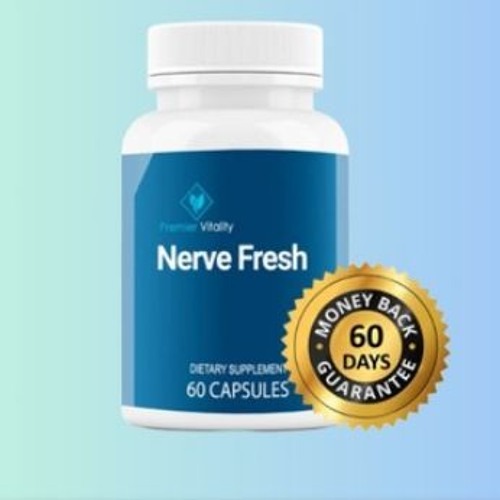How to Choose the Right Gut Health Supplement for You
From gas and bloating to mood swings and fatigue, poor gut health can show up in surprising ways. With the explosion of gut health supplements in recent years—probiotics, prebiotics, digestive enzymes, fiber blends—it’s easy to feel overwhelmed by choices. The good news? You can find the perfect supplement, as long as you understand what your gut needs.
In this article, we’ll break down how to choose the right gut health supplement for you, step by step. Whether you’re just getting started or trying to fix ongoing issues, this guide will help you make smarter decisions for a healthier gut.
Why Gut Health Matters
Before we dive into supplements, let’s talk about why gut health is so important. Your gut is home to trillions of bacteria—some good, some bad. This ecosystem, known as the gut microbiome, plays a big role in:
- Digestion and nutrient absorption
- Immunity (70% of immune cells live in your gut)
- Mood and brain health (thanks to the gut-brain axis)
- Skin health and inflammation levels
When your gut is out of balance (a condition called dysbiosis), you may experience symptoms like bloating, constipation, diarrhea, acne, anxiety, or even sugar cravings.
That’s where supplements can help—but only when chosen wisely.

Step 1: Identify Your Gut Health Goals
The first step in choosing a gut supplement is to figure out why you need it. Ask yourself:
- Are you bloated after meals?
- Do you have irregular bowel movements?
- Have you taken antibiotics recently?
- Are you dealing with skin or mood issues?
Each symptom points to a different potential imbalance. Here’s a quick breakdown:
| Symptom | Best Supplement Type |
| Bloating and gas | Digestive enzymes |
| Irregularity (constipation) | Fiber or prebiotics |
| Recent antibiotics | High-potency probiotics |
| Leaky gut symptoms | L-glutamine or collagen peptides |
| Hormonal imbalance | Moringa or gut-focused adaptogens |
Step 2: Understand Supplement Types
There are many gut supplements, but most fall into these categories:
1. Probiotics
Live beneficial bacteria that help balance your gut microbiome.
- Best for: restoring gut flora, boosting immunity, reducing bloating
- Look for: at least 10 billion CFUs and multiple strains like Lactobacillus and Bifidobacterium
2. Prebiotics
Non-digestible fibers that feed your good gut bacteria.
- Best for: enhancing probiotic effectiveness, increasing regularity
- Look for: inulin, FOS (fructooligosaccharides), chicory root
3. Digestive Enzymes
Help break down food for better absorption and less discomfort.
- Best for: heavy meals, protein digestion, bloating relief
- Common enzymes: amylase (carbs), protease (proteins), lipase (fats)
4. Fiber Supplements
Help regulate digestion and support detoxification.
- Best for: constipation, toxin removal, satiety
- Common types: psyllium husk, flaxseed, acacia fiber
5. Herbal Supplements
Natural support from plants like moringa, ginger, or slippery elm.
- Best for: inflammation, hormone balance, gut lining support
Step 3: Check the Ingredients and Quality
Keyword: what to look for in gut supplements
Not all supplements are created equal. Here’s what to keep in mind when comparing options:
✅ Things to Look For:
- Third-party testing or certification
- Transparent labeling of strains and CFUs (for probiotics)
- Natural or organic ingredients
- No artificial fillers or additives
❌ Red Flags:
- Vague ingredient lists
- Over-the-top health claims (“cures everything”)
- No reviews or clinical backing
Step 4: Consider Your Lifestyle and Diet
Some supplements work better for certain lifestyles. For example:
- Busy professionals: A shelf-stable, once-a-day probiotic capsule is ideal
- Smoothie lovers: Powders like prebiotics or moringa blend well
- Keto or vegan diets: Look for enzyme blends that match your food choices
Don’t forget: supplements are only part of the picture. You should also be eating gut-friendly foods like:
- Fermented foods (yogurt, kefir, kimchi)
- Leafy greens
- Whole grains
- Anti-inflammatory herbs and spices
Step 5: Track Your Progress
Once you start a gut health supplement, give it at least 3 to 4 weeks before judging the results. Use a symptom tracker or journal to monitor changes like:
- Bloating after meals
- Regularity and stool quality
- Energy levels and sleep
- Skin clarity and mood
If you don’t see improvements, you may need to adjust the dosage or switch to a different type.
Bonus Tip: Try Moringa for an All-in-One Boost
Moringa oleifera is gaining traction as a natural gut health powerhouse. It’s rich in fiber, antioxidants, and anti-inflammatory compounds.
Moringa Benefits:
- Acts as a gentle prebiotic
- Reduces gut inflammation
- Supports hormone balance (great for women)
- Helps detox the digestive system
Try moringa in capsule or powder form, especially if you’re looking for a natural, food-based option.
Final Thoughts: Listen to Your Gut
Choosing the right gut health supplement doesn’t have to be complicated. By identifying your symptoms, understanding your options, and selecting high-quality ingredients, you can create a supplement routine that actually works.
Remember, a healthier gut means a healthier you, and it all starts with the right support.
✅ Ready to Start?
- Pick one supplement that matches your gut goal
- Combine it with fiber-rich foods and fermented options
- Stay consistent and track your progress weekly
Want more gut health tips? Bookmark this article and share it with someone who could use a gut check!




One thought on “How to Choose the Right Gut Health Supplement for You”